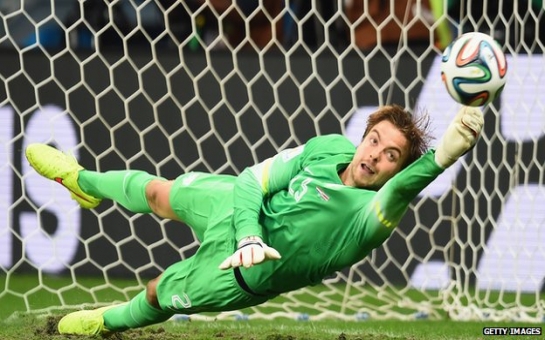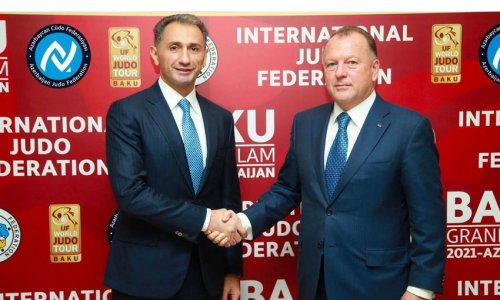Psychologists studied videos from World Cups and European Championships between 1976 and 2012.They found that after three kicks in the same direction, keepers were more likely to dive the opposite way on the next shot.Luckily for them, penalty takers have so far failed to exploit this predictable pattern.Four knockout games in the 2014 World Cup in Brazil were decided by penalties - a record shared with Italy in 1990 and Germany in 2006.Gambling with the gameGoalkeepers were the heroes in this year's shoot-outs with the likes of Brazil's Julio Cesar and Tim Krul from the Netherlands making game winning saves at crucial moments.While scientists have sought to define the perfect penalty in the past, this new study from researchers at University College London (UCL), tries to statistically evaluate goalkeeping patterns in shoot-outs.They conclude that the keepers in these situations often fall prey to what's termed the "gambler's fallacy".The fallacy can be seen in the flipping of a coin. If there's a run of "heads", many people mistakenly believe there is then an increased chance that the next one will be "tails".The reality is that there is a fifty-fifty chance on every toss, regardless of the length of the sequence.In their analysis the researchers found that almost every action, such as the sides of the goal that the kickers aimed for, and the way the goalkeepers dived, were random events.Crucially the researchers found that the goalkeeper's decisions were predictable after three kicks had gone in the same direction."After three, it starts to be more significant than chance," said lead author Erman Misirlisoy, from UCL."Around 69% of dives are in the opposite direction to the last ball, and 31% in the same direction as last after three consecutive balls in the same direction."A good example of this was in the England Portugal Euro Championship quarter final in 2004. The game went to penalties, and the first three Portuguese players all aimed at the left of the goal.On the fourth penalty, the English keeper, David James, went to the right. The next Portuguese player stayed left again and scored. Portugal won the shootout 6-5."If kickers were to identify non-random patterns in the goalkeeper's behaviour, they could really win the match quite easily without even a perfect kick. They would just have to kick the opposite way," said Erman Misirlisoy.If players were to take a group decision to all kick the same way, the fourth penalty in the shoot-out should offer them their best chance of scoring.However, the problem for penalty takers is that the expectation from the crowd and their team mates is that they will score.This weight may explain why they don't work together or communicate well as a group."Kickers are under enormous pressure, focussed on the moment of their own kick. Each individual kicker may not pay enough attention to the sequence of preceding kicks to predict what the goalkeeper will do next," said co-author Prof Patrick Haggard.If goalkeepers want to improve their odds of saving shots they must resist the gambler's fallacy. Their best bet would be to have planned a sequence of dives and to stick with it."The best point for the keeper is to become more random," said Erman Misirlisoy."There is nothing from him to exploit and he is only going to open himself up to being exploited if he does produce a pattern."The one area of the goal that the psychologists didn't examine is the centre."In our analysis we decided to leave out the middle as it is so rare. It's less than 10% of cases, and goalkeepers remain in the middle only 2.5% of the time, so kickers could possibly exploit this by kicking down the middle more often."The study has been published in the journal, Current Biology.(BBC)Bakudaily.az
Goalkeepers 'gambler's fallacy' impacts penalty shoot-outs
Sport
11:00 | 01.08.2014

Goalkeepers 'gambler's fallacy' impacts penalty shoot-outs
Goalkeepers facing penalty shoot-outs make a predictable error that could influence the outcome say researchers.
Follow us !










